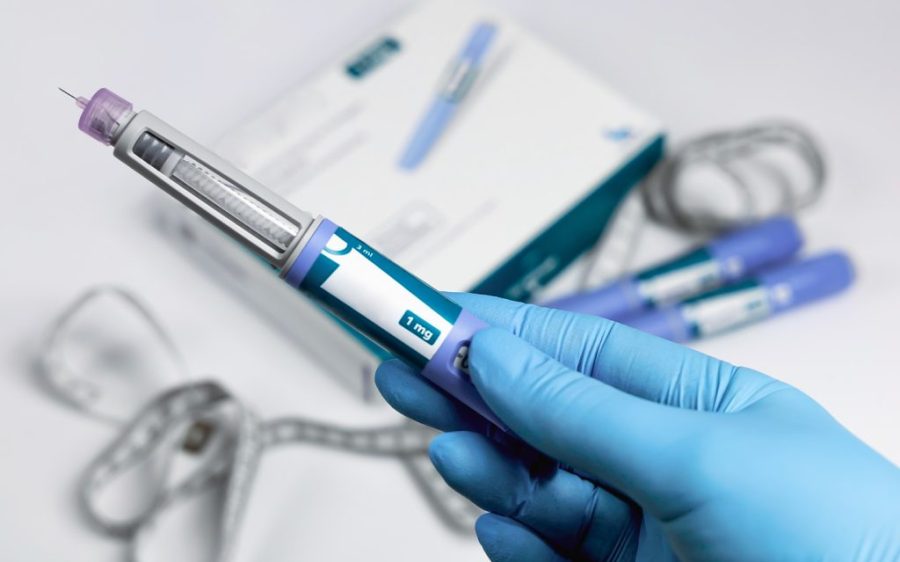Lizzo’s used it. Meghan Trainor used it. So have Oprah, Rosie O’Donnell and Josh Gad.
It’s the apparent silver bullet for weight loss: semaglutide injections, also known as Ozempic or Wegovy. The drug, which has brought about multiple high-profile celebrity transformations, has been enticing many to try it on their own.
The reality, though, is often disappointing. Semaglutide’s effects tend to decrease over time, leading to patients’ weights plateauing. There’s also the tell-tale “Ozempic face” to deal with.
Enter ecnoglutide, a novel alternative developed by the Hangzhou-based Sciwind Biosciences. Unlike other glucagon-like peptide-1 (GLP-1) receptor agonists such as semaglutide, the drug is the first of its class designed to avoid triggering desensitisation, according to principal researcher Linong Ji. Last month, the company released promising results from ecnoglutide’s final phase of clinical trials.
During the study, subjects receiving the highest dose saw an average of 15.1 percent weight loss at the end of the 48-week trial period. For comparison, subjects reported an 8.5 percent weight loss at the same dose in phase III trials for semaglutide.
[See more: China is racing to bring a homegrown weight loss drug to market]
Because patients didn’t see a plateau, “even greater weight loss might be achievable with extended ecnoglutide treatment,” the research team wrote.
Like semaglutide, ecnoglutide is designed to mimic the GLP-1 hormone, which is responsible for stimulating corresponding GLP-1 receptors. Macao’s University Hospital endocrinologist Xu Shichao describes the receptors as switches in the brain, gut and pancreas: “[When] the switch turns on, it lowers blood sugar, suppresses appetite, and reduces gastrointestinal movement speed.” This makes people feel fuller for longer periods of time, he told Macao News.
The key innovation? Ecnoglutide is biased – it selectively activates certain GLP-1 receptor pathways over others. In this case, it’s weighted in favour of molecular messengers that contribute to weight loss effects while minimising the recruitment of beta arrestin, the crucial protein that dampens receptor responses.
“This achievement represents a significant advancement in weight management,” said Ji.

Another advantage is that the drug has limited side effects – nausea, which is experienced by one in five users of semaglutide, only occurred for around one in ten people during the ecnoglutide trial.
According to Xu, queasiness is a significant stumbling block for patients prescribed semaglutide in Macao. “After using it once or twice, they don’t want to continue using it because the nausea is so uncomfortable,” he said. Xu hopes ecnoglutide will allow more future patients to stick with their regimens.
On the other hand, Xu told Macao News that ecnoglutide is still not a miracle cure. “It requires corresponding lifestyle choices like nutrition and exercise,” he said, making it a less effective option for those who are unwilling or unable to work out. Additionally, patients with a BMI of over 40 may see less dramatic results, since it’s likely that their obesity is at least partially caused by non-lifestyle-related factors, Xu said.
Despite being optimistic, Xu also cautioned that more research is needed on long-term effects. For instance, issues with coronary blood vessels or the immune system aren’t out of the question, he said.
[See more: Macao has a new weight management clinic]
Passing phase III clinical trials is a major milestone for ecnoglutide: used to assess the safety and efficacy of drugs compared to existing treatments, the trials are often the final step before drugs can be sold on the market.
According to Sciwind Biosciences’ chief executive officer (CEO) Pan Hai, ecnoglutide’s application is currently being processed by the Chinese National Medical Products Administration (NMPA). Pan is hopeful that the drug will “become one of the important options for the comprehensive management of obesity and metabolic diseases.”
Meanwhile, Florida Hospital Diabetes Institute director Richard E. Pratley sees ecnoglutide as a symbol of China’s growing role in the bioengineering industry. “It may be the dawn of a new era,” he wrote.






